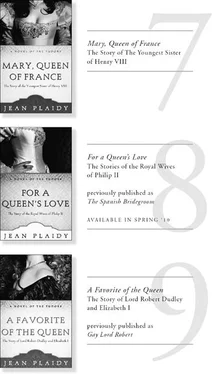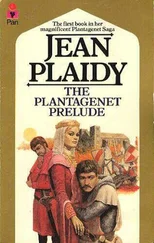Jean Plaidy - The Murder in the Tower - The Story of Frances, Countess of Essex
Здесь есть возможность читать онлайн «Jean Plaidy - The Murder in the Tower - The Story of Frances, Countess of Essex» весь текст электронной книги совершенно бесплатно (целиком полную версию без сокращений). В некоторых случаях можно слушать аудио, скачать через торрент в формате fb2 и присутствует краткое содержание. Жанр: Старинная литература, на русском языке. Описание произведения, (предисловие) а так же отзывы посетителей доступны на портале библиотеки ЛибКат.
- Название:The Murder in the Tower: The Story of Frances, Countess of Essex
- Автор:
- Жанр:
- Год:неизвестен
- ISBN:нет данных
- Рейтинг книги:3 / 5. Голосов: 1
-
Избранное:Добавить в избранное
- Отзывы:
-
Ваша оценка:
- 60
- 1
- 2
- 3
- 4
- 5
The Murder in the Tower: The Story of Frances, Countess of Essex: краткое содержание, описание и аннотация
Предлагаем к чтению аннотацию, описание, краткое содержание или предисловие (зависит от того, что написал сам автор книги «The Murder in the Tower: The Story of Frances, Countess of Essex»). Если вы не нашли необходимую информацию о книге — напишите в комментариях, мы постараемся отыскать её.
The Murder in the Tower: The Story of Frances, Countess of Essex — читать онлайн бесплатно полную книгу (весь текст) целиком
Ниже представлен текст книги, разбитый по страницам. Система сохранения места последней прочитанной страницы, позволяет с удобством читать онлайн бесплатно книгу «The Murder in the Tower: The Story of Frances, Countess of Essex», без необходимости каждый раз заново искать на чём Вы остановились. Поставьте закладку, и сможете в любой момент перейти на страницу, на которой закончили чтение.
Интервал:
Закладка:
The two of them were closeted together for hours at a time. Making plans, he told her, for the treatment of this new client who was the richest that had ever fallen into their hands.
She slowly descended the stairs and made her way to the door of the receiving chamber.
“Simon,” she said, “did you call?”
There was no answer, so cautiously she opened the door and looked in. The smell of incense lingered, but the curtains had been drawn back now to let in a little daylight and the candles were out.
She shut the door quietly behind her and went to the table. There she stood looking round the room. She saw the large box on the bench and opening it, disclosed the wax figures.
She sniggered.
“What a fine gentleman!” she whispered. And there was the lady, with what looked like real hair. And what a figure!
She could imagine the tricks he got up to with them.
Still there was money in it—and they lived by it.
“Mustn’t be caught in here,” she whispered; then she opened the door, looked out, made sure she was unobserved and went quickly and quietly back upstairs.

Robert hurried into the apartment where Overbury sat at work.
“Tom,” he cried, “write me a letter quickly … a letter of regret.”
“To the lovely Countess?” said Overbury with a smile.
“Yes. I had promised to be with her this evening and the King had commanded me to attend him.”
“How inconvenient it sometimes is to be so popular!” murmured Overbury.
“And when it is finished will you take it to Hammersmith for me.”
“To Hammersmith?”
“Yes, I was to meet her there … at the house of a Mistress Turner. I cannot stay now, but you know the kind of things. Your letters delight her. Tell her that I am desolate … you know so well how to put it.”
Robert went off and Overbury returned to his table a little disgruntled. It was one thing to write the flowery epistles, but to be asked to deliver them like some page boy was a little humiliating. And Hammersmith! Mistress Anne Turner! He had heard of the name. He believed she was a connection of Dr. Forman the notorious swindler, who might even be a witch. The man had been in trouble once or twice and called upon to answer for his misdeeds. Surely the Countess of Essex was not involved with people like this!
However, there was nothing to do but write the letter and take it to the woman.
An hour later he was riding out to Hammersmith, but his mood had not improved as he journeyed there. Was it absurd for a man of his talents to be employed thus? It was said in some quarters that Rochester ruled the King and Overbury ruled Rochester; and in that case did not Overbury rule England?
He liked to hear such talk. But at the same time it made it doubly uncomfortable to be riding out as a messenger for illicit lovers.
A maid let him into the house and when he asked to see the Countess of Essex without delay, he was shown into a handsome room. He had not been there many seconds before the door was flung open and a voice cried: “Robert, my dearest …” and then stopped.
The Countess was wearing a low-cut gown which after the new fashion exposed her breasts; her long hair was loose; and there was a silver ruff about her neck.
Her expression grew cold as she looked at him.
“My lady, I bring you a letter from Viscount Rochester.”
She snatched it ungraciously.
“So he is not coming,” she said.
“The King commanded his presence.”
Her mouth was sullen and she looked like a child who, disappointed of a longed-for treat, turns her anger on the one who tells her she cannot have it for a while.
“Return to my lord,” she said, “and thank him for sending you. But you will be in need of refreshment. It shall be given to you in the kitchens.”
“I am in no need of refreshment, my lady, and I do not eat in kitchens. Perhaps I should have introduced myself. Sir Thomas Overbury at your service.”
“Yes, I know you to be a servant of my lord Rochester.”
She turned away, her manner insolent.
Hatred surged up in Overbury. The wanton slut! How dared she. So she had heard of him! Had she heard that he was the man who worked behind the scenes and that it was due to his services that Robert Carr had been able to hold his place with the King’s ministers? How dared she offer him such insolence!
She had gone and he was left standing there.
He did not remain; he went out to his horse and rode hard back to Court.
I shall not forget your insults to me, Lady Essex, he thought.

The September day had been warm and the windows were open to the garden as Jane Forman and her husband sat together while the maids served them with supper.
The doctor was in a mellow mood. The Countess had called that day and that event always pleased him.
Jane wondered how much money he was making from that deal and how long he would be able to keep it going. By surreptitious visits to his receiving room and peeps into the diary he kept—for she could read a little—she knew that the Countess was in love with Viscount Rochester whom all knew was one of the most famous men at Court, and that she wanted to be rid of her husband, the Earl of Essex. Jane knew only one way of getting rid of husbands; also that Simon did not care to sell poisons. He had been in trouble too many times to want more; and supplying poisons could bring him real trouble.
Ah, she thought, one of these days he’ll land up on a gibbet.
And that would not be so good for her, for life here in Lambeth was comfortable, even luxurious, and Jane liked her comforts.
She looked at him steadily, and as the light fell on his face she thought he had aged lately; that his pallor was more pronounced and he looked tired.
He had eaten well and was half dozing at the table; she had no idea therefore that he was aware of her scrutiny.
“Well, wife,” he said suddenly, “what are you thinking of?”
She sometimes believed that he could read her thoughts so she did not lie to him.
“Death,” she said simply.
“What of death?” he asked.
“I was wondering whether you or I would die first. Do you know? But of course you do. You have pre-knowledge of these things.”
“I shall die first,” he said quietly.
She leaned toward him and said quickly: “When?”
“Next Thursday,” he answered.
Jane leaped to her feet. “Thursday!” she cried. “The Thursday that is coming!”
He looked as startled as she did. “Eh?” he cried. “What did I say?”
“You said you would die on Thursday.”
He looked aghast, for he was shaken. He had spoken thoughtlessly, and the words had slipped out almost involuntarily. He was alarmed because on the rare occasions when he had foreseen the future it had happened in this way.
“Forget it,” he said.
But neither of them could.
He already looks older, thought Jane. A little more tired. A little closer to death. A little closer to Thursday.

On Wednesday Jane said jokingly: “Well, you only have one more day to live, Simon. I trust your affairs are in order.”
He laughed with her and she was relieved. He had been joking of course.
On Thursday he said he had business to do at Puddle Dock and took boat there. He was rowing steadily when the oars slipped from his hands and he fell forward.
Читать дальшеИнтервал:
Закладка:
Похожие книги на «The Murder in the Tower: The Story of Frances, Countess of Essex»
Представляем Вашему вниманию похожие книги на «The Murder in the Tower: The Story of Frances, Countess of Essex» списком для выбора. Мы отобрали схожую по названию и смыслу литературу в надежде предоставить читателям больше вариантов отыскать новые, интересные, ещё непрочитанные произведения.
Обсуждение, отзывы о книге «The Murder in the Tower: The Story of Frances, Countess of Essex» и просто собственные мнения читателей. Оставьте ваши комментарии, напишите, что Вы думаете о произведении, его смысле или главных героях. Укажите что конкретно понравилось, а что нет, и почему Вы так считаете.











